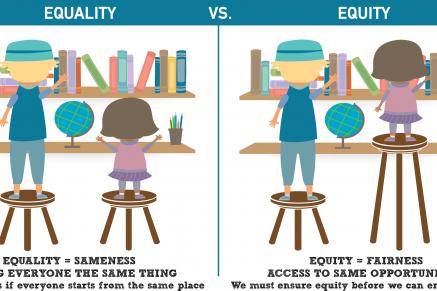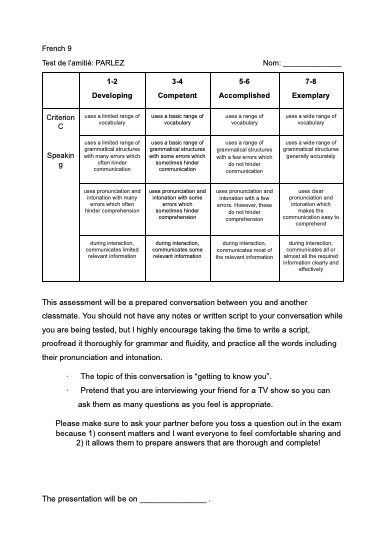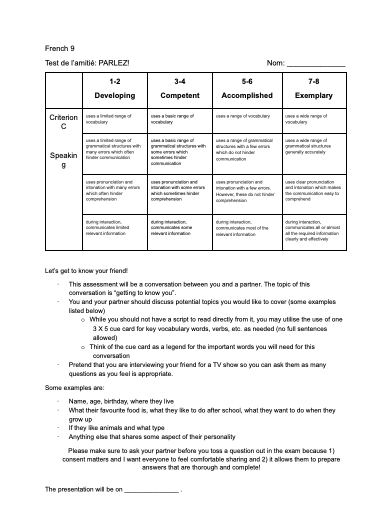Module 1
This first module discussed the importance of adaptations when it comes to assessments in the classroom. Looking at our assessments and how they should be adapted to fit the needs of our students was a theme spread throughout this section.
Equality versus equity:
The first task of this module that resonated with me was the aspect of equity versus equality. This is something I speak of often when it comes to societal issues or structures, however, it had not dawned on me to speak of it for assessments in the classroom. Every student should have the opportunity to thrive in their own meaning of the word during classroom activities and assessments. I believe that providing equitable opportunities will be able to greatly alter the adaptation quality depending on the students needs.

A visual interpretation of equity versus equality within a classroom setting.
Preparing a student for an assessment:
Additionally, an aspect of this module that we were tasked to ponder, was how students with exceptionalities were tasked to prepare for assessments. I find that because the needs of my students are vast, diverse, and on a spectrum, it can be tricky to map out three sole methods of helping them prepare for their assessments.
If I had to narrow it down to three specific preparation strategies for a speaking assessment (something we do in every Core French classroom), I would focus on the vocabulary, the layouts of answers, as well as the pronunciation.
Students who have an exceptionality often need a little more support than their peers. I decided to focus on a speaking assessment, as it can be an intimidating assessment as it is supposed to mimic a spontaneous conversation with the educator.
1) Vocabulary
- Allowing the student to bring a sheet with certain vocabulary words on it to help them form sentences
- Allowing for sentence starters to help jumpstart their ideas
- Putting certain verb conjugations on the sheet to help with sentence formation
2) Layouts of answers
- Prepare students by showing them simple ways of responding to questions asked (ie: turning the questions into the answer, utilizing vocabulary within the question, etc.)
- Practicing answering questions in class (similar to the questions that will be asked on the assessment)
3) Pronunciation
- Going over phonics/phonetics in class
- Showing them how to write out letter combinations and words phonetically (ie: 'ou' together makes an [oo] sound, the word 'tour' is pronounced [tooR])
- Allowing for them to include the phonetic spelling of words on their vocabulary sheets to help alleviate the stress with pronunciation
Adapting an assessment:
One of the activities we completed was creating an assessment for a student with an exceptionality within our classroom. I decided to alter a reading assessment in order to make it more approachable for the students who may need it. The adaptations included a legend for trickier words, providing access to the questions in English to ensure comprehension of the task, and adapting the amount of questions. I also offered the use of speech to text technology, scribe for written answers, and the use of a device where appropriate.
The assessment before:

The assessment after:

Post a comment